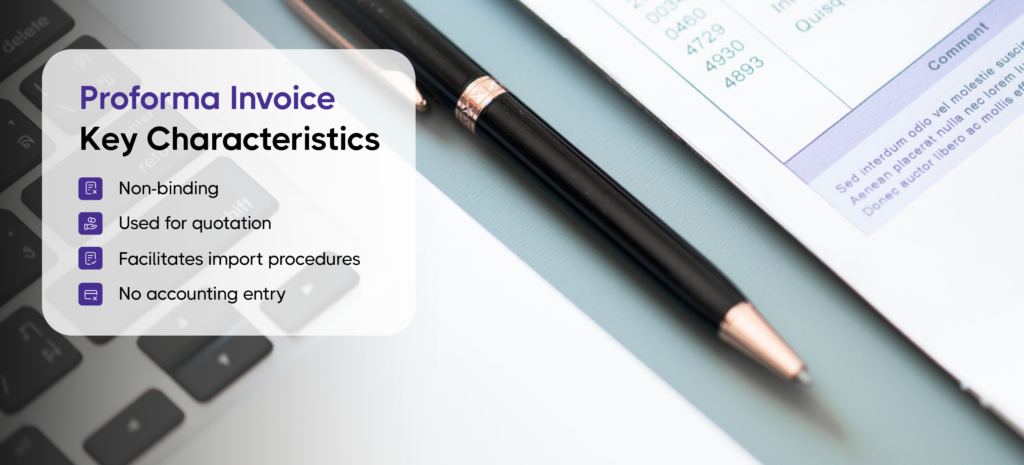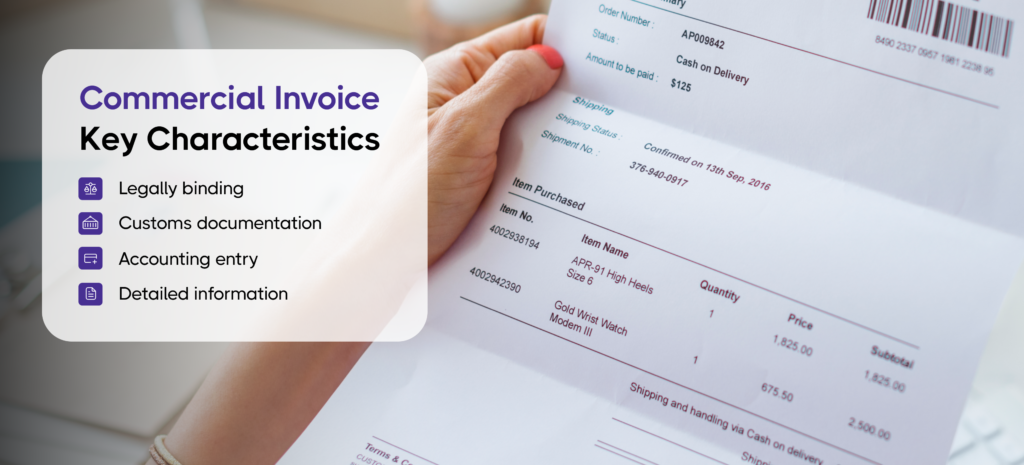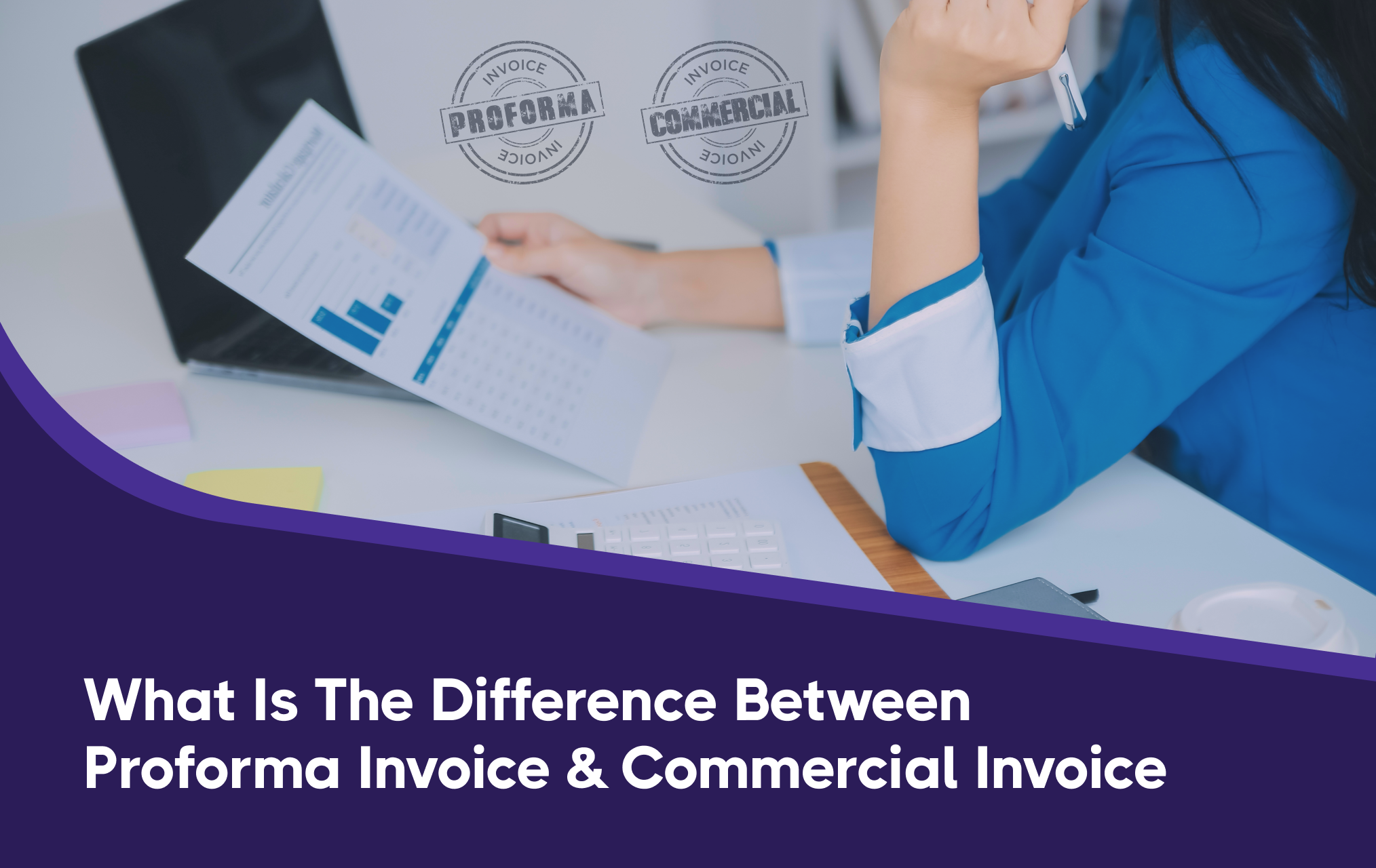In international trade, invoices are a key element of the documentation process. Invoicing for UAE businesses typically involves the use of the proforma invoice and the commercial invoice, and each type serves a different purpose.
Understanding the differences between these international shipping invoices in the UAE is essential for smooth and efficient business operations. In this blog post, we’ll explore the key distinctions between proforma invoices and commercial invoices, along with examples so you can better understand what they are and when you should use each.
What Is Proforma Invoice
A proforma invoice, or PI, is a preliminary bill of sale sent to buyers in advance of a shipment or delivery of goods. It’s essentially an informal invoice that outlines the terms of the transaction, including the description of goods, quantity, price, and other important details. However, it does not demand payment. Instead, it serves as a commitment by the seller to provide the goods or services as described, and it gives the buyer an estimate of the costs involved.

- Non-binding: A proforma invoice is not a final sale document and does not hold the same legal weight as a commercial invoice.
- Used for quotation: It acts as a quote or estimate provided to the buyer.
- Facilitates import procedures: Importers often use proforma invoices to obtain import licenses, arrange financing, and establish credit terms.
- No accounting entry: Since it is not a request for payment, it is not recorded in the seller’s accounting books.
Imagine a company, EcoTech Solutions, that manufactures solar panels. A potential buyer from Dubai, GreenNRG LLC, contacts EcoTech Solutions for a quote on 100 solar panels. EcoTech Solutions prepares a proforma invoice detailing the description of the solar panels, quantity, price per unit, total estimated cost, shipping terms, and estimated delivery date. GreenNRG LLC uses this proforma invoice in UAE to apply for an import license and secure financing from their bank before finalizing the purchase.
What is a Commercial Invoice?
A commercial invoice, or CI, is a formal document used in international trade to request payment for shipped goods. Unlike a proforma invoice, it is a legally binding document that provides a detailed account of the goods sold, including their value, quantity, and any applicable taxes or duties. The commercial invoice is essential for customs clearance and serves as the basis for determining the duties and taxes payable.

- Legally binding: A commercial invoice is a final sale document that confirms the sale of goods and obligates the buyer to pay.
- Customs documentation: It is a critical document for customs authorities to assess and process the shipment.
- Accounting entry: The seller records the commercial invoice in their accounting books as it represents a receivable.
- Detailed information: It includes specific details such as the buyer and seller information, description of goods, terms of sale, payment terms, and shipping details.
After receiving the import license and securing financing, GreenNRG LLC confirms the order with EcoTech Solutions. EcoTech Solutions then ships the 100 solar panels to the UAE and issues a commercial invoice to GreenNRG LLC. This commercial invoice includes all necessary details such as the buyer's and seller's contact information, a detailed description of the solar panels, the total value of the shipment, payment terms, and shipping details. Finally, GreenNRG LLC presents this commercial invoice in UAE to clear the shipment through customs and arrange payment to EcoTech Solutions.
When to Use a Proforma Invoice
Proforma invoices are used for:
- Quotations and Estimates: When providing a potential buyer with a quote or estimate of the costs involved in a transaction.
- Import Licensing: When the buyer needs to apply for an import license or arrange for import permits.
- Financing Arrangements: When the buyer is seeking financing or opening a letter of credit.
- Internal Approvals: When the buyer requires internal approval or needs to set aside funds for the purchase.
- Finalizing a Sale: When the sale is confirmed, and the seller is ready to ship the goods and request payment.
- Customs Clearance: When shipping goods internationally and the shipment needs to clear customs.
- Accounting Purposes: When the transaction needs to be recorded in the seller’s accounting books.
- Legal Documentation: When there is a need for a legally binding document that confirms the sale and obligates the buyer to pay.
Conclusion
Both proforma invoices and commercial invoices are essential tools in international trade, each serving a distinct purpose. A proforma invoice (PI) is used for quotations, estimates, and facilitating import procedures, while a commercial invoice (CI) is a legally binding document required for customs clearance and payment requests.
By understanding the invoice differences for UAE businesses and how each type fits into your import process, you can run your operations more smoothly and efficiently.
Looking to simplify your shipping processes, including invoicing and customs clearance for your international shipments? We’re here to help. Contact us to learn how eShipper’s comprehensive shipping solutions can support your business, streamline your logistics, and enhance your overall operational efficiency.




